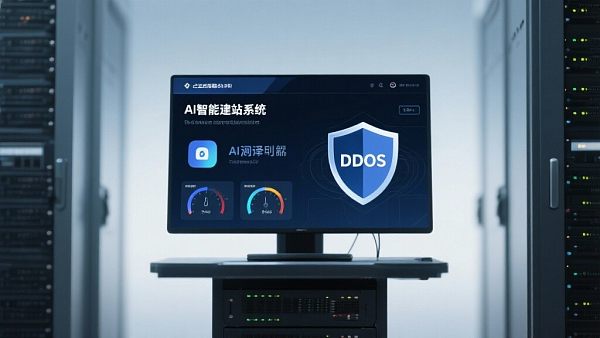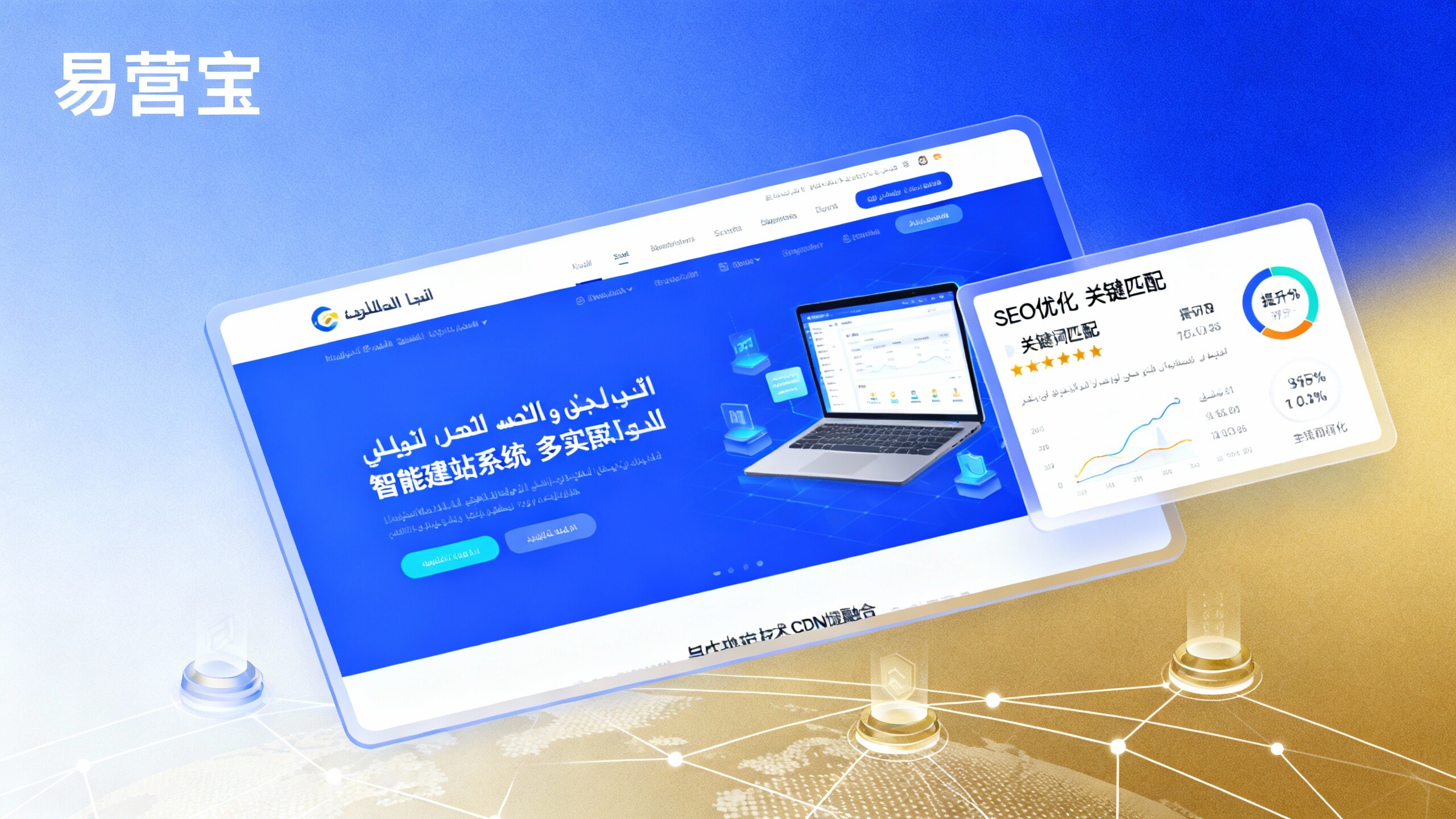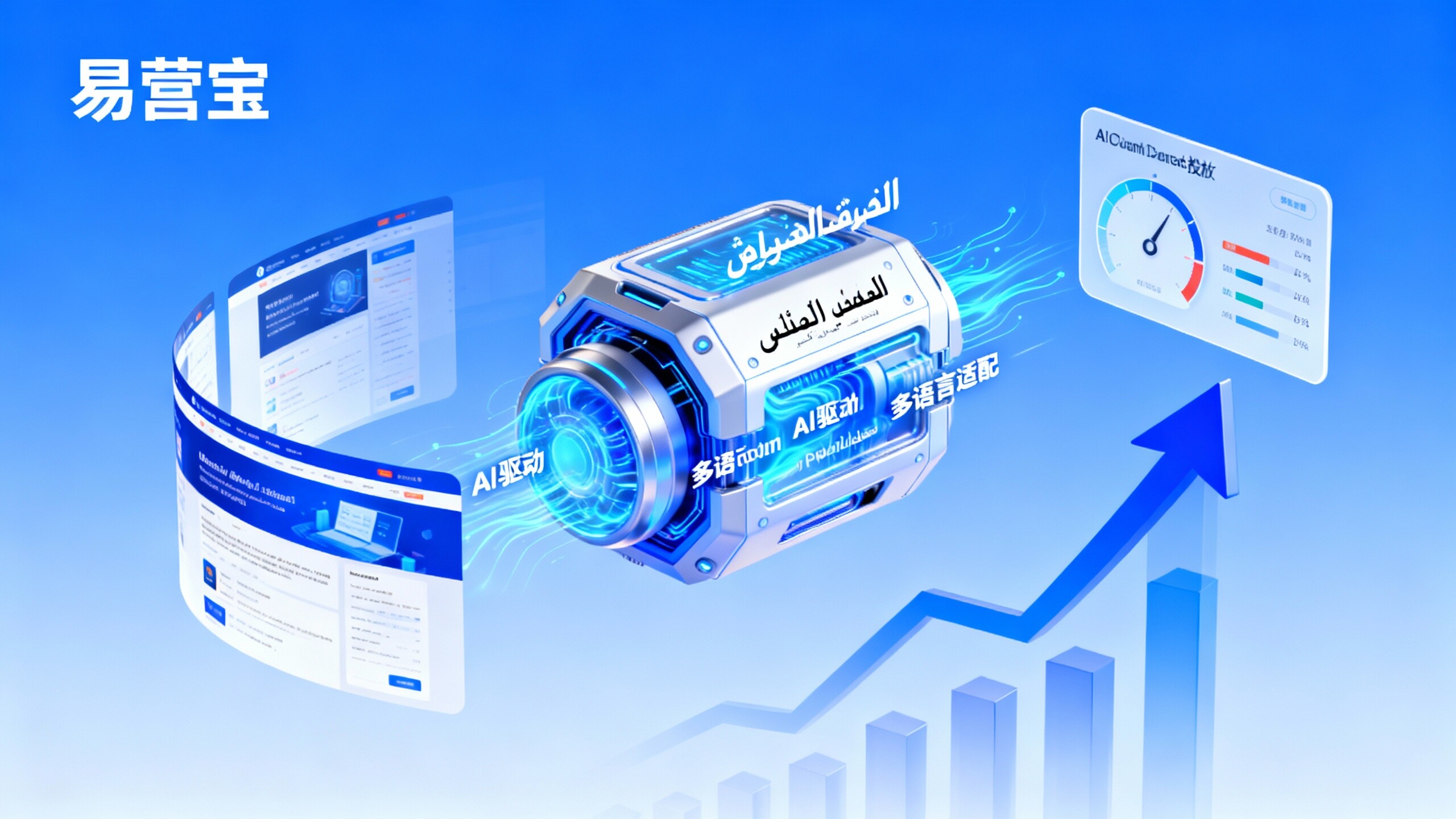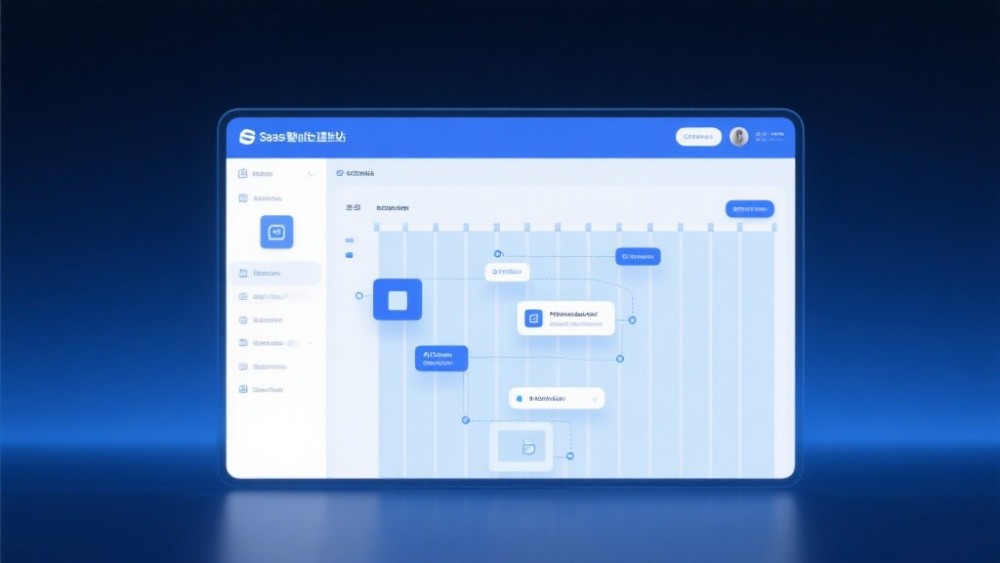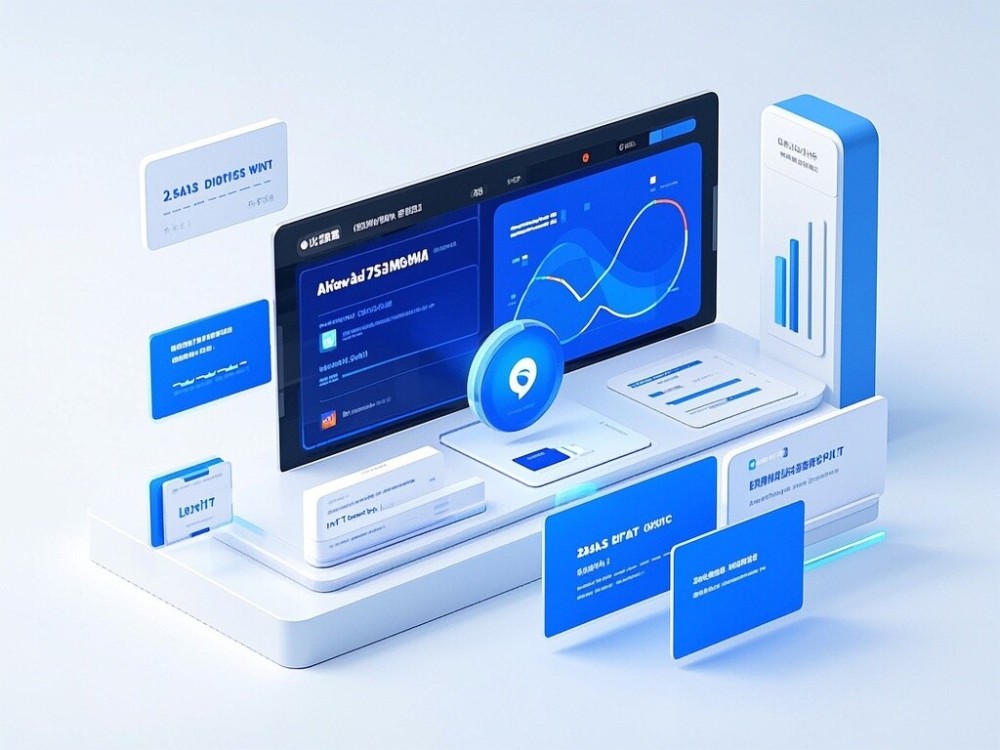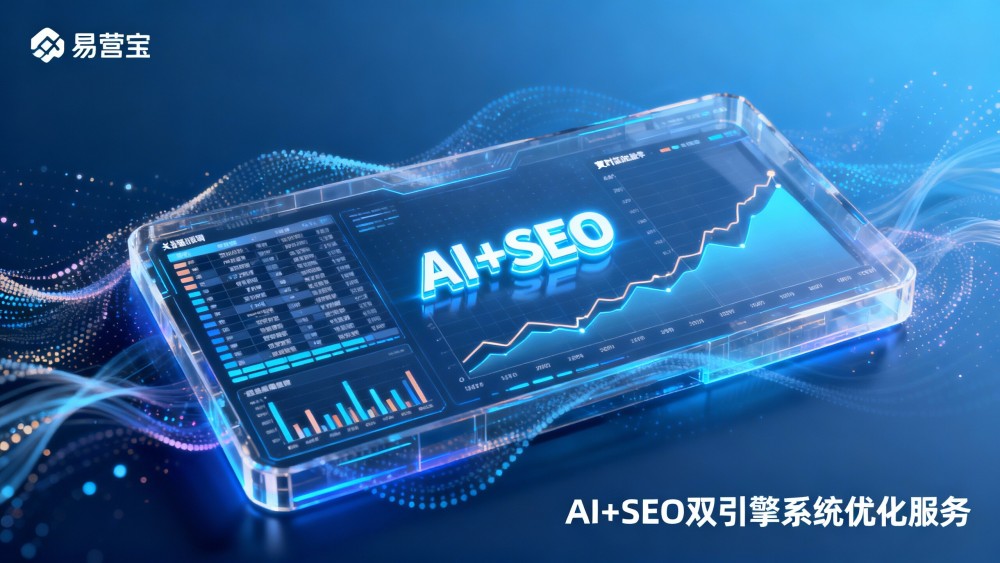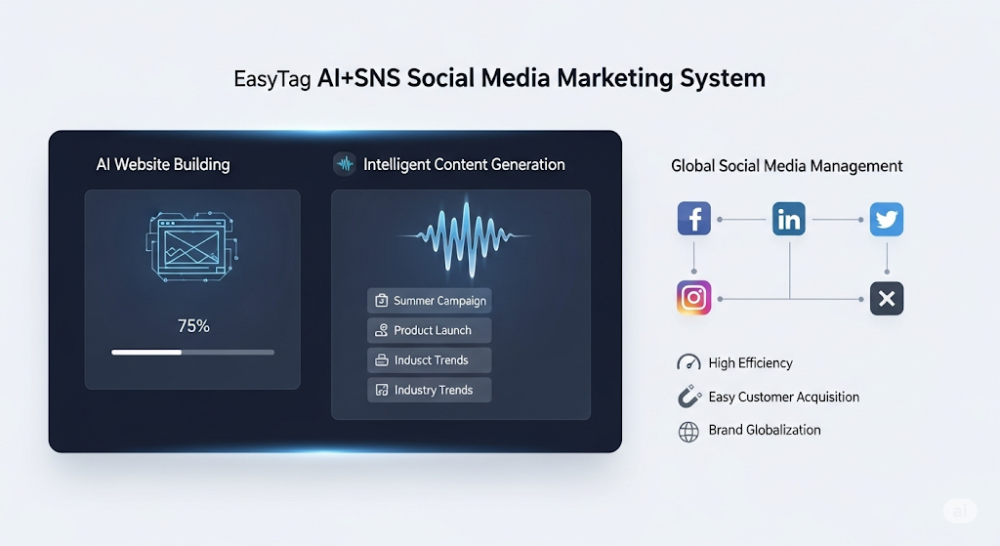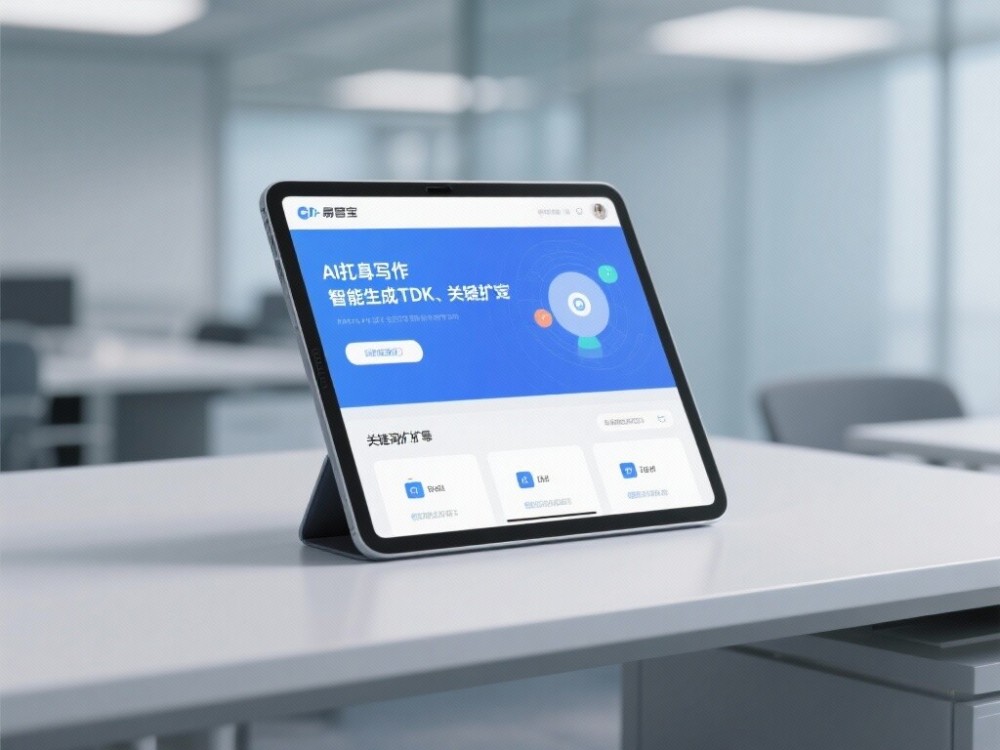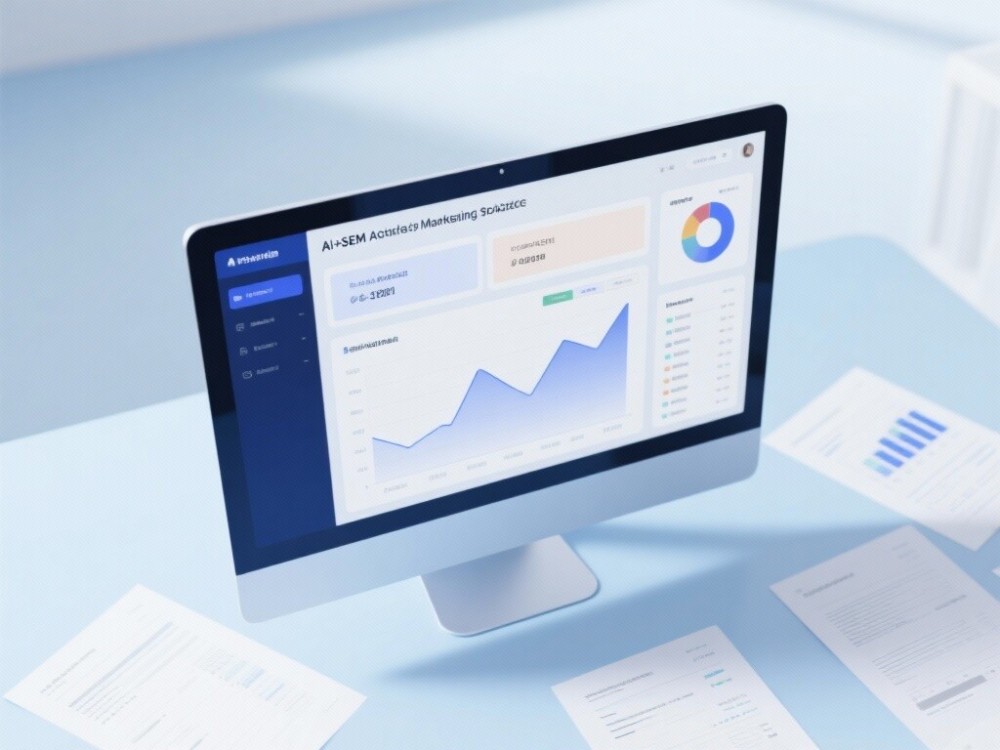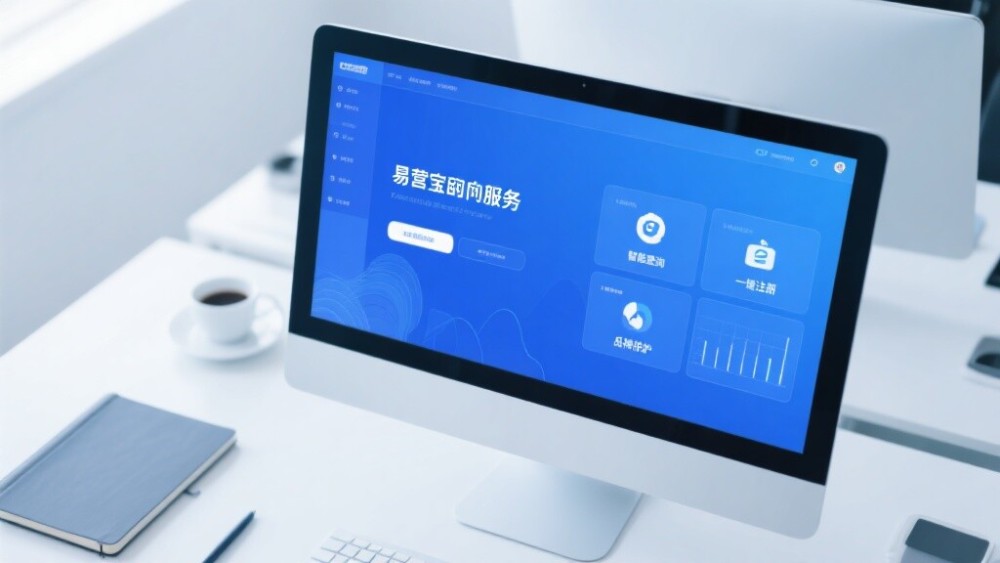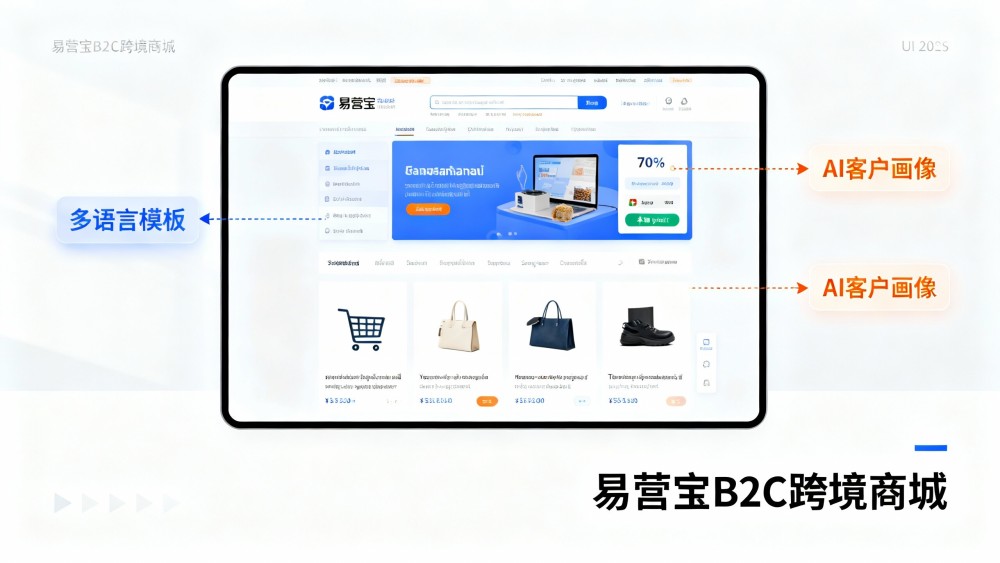- Recommended Arabic independent website construction companies for 2024: Reliable service provider rankings2026-01-29View details
- How is Easy Operation Treasure's foreign trade inquiry service? Real customer feedback and effectiveness evaluation2026-01-29View details
- Can Yiyingbao's multilingual foreign trade website building service improve overseas lead conversion? Enterprise test report2026-01-27View details
- Is Yiyingbao's intelligent website building system good? See real user experiences and ROI cycles from enterprise clients2026-01-27View details
- What features are needed for a Middle East market website system? 2024 cross-border enterprise selection list exposed2026-01-28View details
- Multilingual website construction helps brands go global: How to achieve stable traffic through Google ranking optimization?2026-01-29View details
- Which global website SaaS platform is the best? Features and reputation rankings of well-known international platforms2026-01-28View details
- How effective is Yandex advertising? Analysis of brand exposure and conversion cases in the Russian market2026-01-28View details
Can Intelligent Website Systems Replace Manual Work? In-Depth Evaluation of Foreign Trade Standalone Websites
Introduction
This evaluation examines whether an AI-powered foreign trade independent website building system can replace manual labor, covering dimensions such as intelligent website construction, AI translation engines, SSL certificates, global CDN, DDoS protection, and AI ad diagnostics. It focuses on practicality and feasibility, targeting information researchers, users/operators, and technical evaluators, combining industry data and case studies to outline technical capabilities, procurement recommendations, and implementation strategies. With a decade of technical expertise in EasyStore and AI + big data capabilities as a reference, we compare manual costs, efficiency, and quality to help you determine which aspects of foreign trade independent website construction and operation can be entrusted to AI-powered systems and which still require deep human involvement.
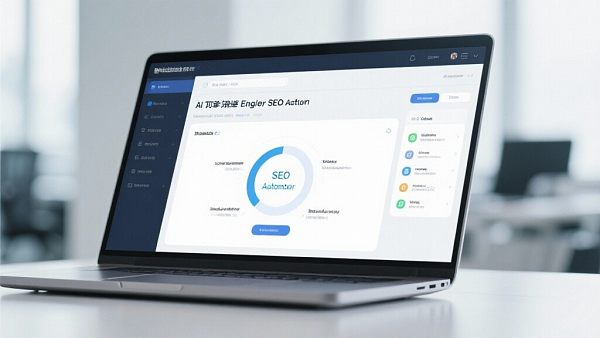
Definition and Technical Performance Evaluation
Before discussing "whether AI-powered website building can replace manual labor," it's essential to clarify the concept: A foreign trade independent website AI-powered system typically refers to a SaaS platform integrating AI translation engines, templated pages, automated SEO, global CDN acceleration, and automated SSL certificate configuration with security protection (including DDoS defense). Technical evaluations include multilingual capabilities, SEO infrastructure, page loading performance, security compliance, and ad integration. For example, EasyStore claims its AI-powered system improves page loading speed by 40% via global CDN, boosts SEO scores by 35%, and integrates AI keyword expansion, automated TDK generation, and AI image creation, significantly reducing manual workload in the early stages. However, technical limitations exist: complex customization, brand visual details, deep content strategy, and high-end negotiations still require human input. Additionally, automated SSL certificate issuance/renewal and DDoS protection are enterprise-grade necessities, compliant with ISO27001 or PCI-DSS audits to meet cross-border payment and data protection requirements. In summary, AI-powered systems can replace manual labor in structured, repetitive tasks but remain indispensable for strategic and highly customized work.
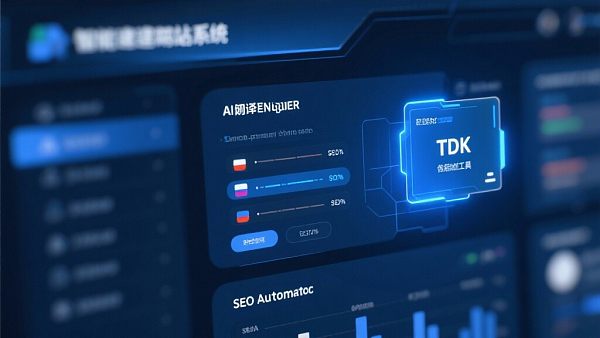
Application Scenarios and Industry Case Studies
AI-powered foreign trade website systems vary significantly across industries and company sizes. SMEs benefit from multilingual templates, AI translation, and automated TDK for rapid product page deployment, leveraging global CDN and SSL for performance and security, reducing costs and launch cycles. B2B corporate sites prioritize SEO and content quality, requiring more manual planning and industry terminology review but can enhance visibility via AI keyword expansion and long-tail optimization. Case in point: A mid-sized exporter saw a 120% increase in ad conversion after adopting AI translation and ad diagnostics, with AI quickly identifying Google Ads account structure issues. EasyStore’s creative factory model and social media automation reduced ad asset preparation time by over 50%, demonstrating effective human-AI synergy in scalable, multilingual ad scenarios.
Comparative Analysis: AI System vs. Manual Labor (Pros and Cons)
Comparing AI-powered systems with manual labor across key dimensions clarifies substitutability. Efficiency-wise, AI excels in templating, AI translation, TDK generation, and basic SEO tasks. For standardized tasks (e.g., multilingual pages, one-click global CDN deployment), AI ensures consistency and reduces errors. Cost-wise, long-term AI ad optimization cuts repetitive labor and outsourcing expenses. However, manual labor still outperforms in complex content strategy, brand voice control, customization, and negotiations. Security-wise, automated SSL and DDoS require coordination with human teams, especially for APT threats or compliance audits. Key comparisons include: AI speeds up templating (+40% efficiency), reduces SEO setup time (35% faster), but lags in high-value conversions (human-led strategies yield 2–3× ROI).
Procurement Guide and Technical Selection Recommendations
When selecting an AI-powered foreign trade website system, evaluate five dimensions: performance, security, SEO, ad integration, and localization. First, verify global CDN and SSL management—ensure auto-cert issuance, renewal, and node switching for target market compliance. Second, assess AI ad diagnostics, Google Ads/Meta/Yandex integration, and AB testing support. Third, confirm AI translation accuracy for industry terms and long-tail keywords to avoid conversion-harming mistranslations. Fourth, check vendor certifications (e.g., high-tech enterprise status, ISO27001, Google Premier Partner). Finally, choose cost models: performance-based pricing suits ROI-focused clients; annual subscriptions fit stable-output enterprises. Pro tip: Demand trial periods, SLA guarantees, and penetration/DDoS testing pre-contract.
Costs, Substitution Scope, and Common Misconceptions
A common misconception is that AI-powered systems fully replace manual roles. Cost analysis should include initial investment, template customization, manual review, ad budgets, and long-term maintenance. AI replaces repetitive, rule-based tasks (e.g., batch product pages, AI keyword expansion, TDK generation) but not high-value conversions (e.g., client negotiations, complex documentation, brand strategy). Security-wise, DDoS and SSL require team collaboration for emergency protocols. Another pitfall is over-relying on AI translation: while efficient, high-competition keyword pages or legal texts still need human polishing for precision and localization. Best practice? "Human-AI collaboration": delegate quantifiable tasks to AI and strategic/high-risk work to experienced teams.
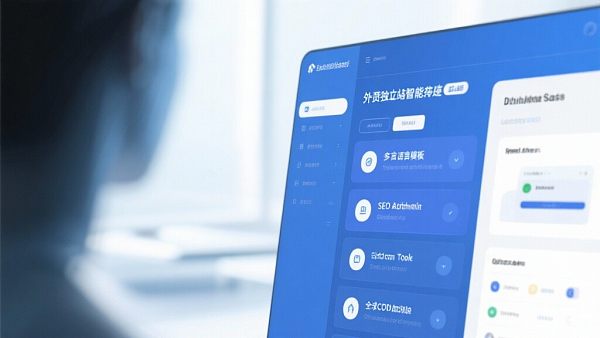
Client Cases, Trends, and FAQs
Case 1: A B2B hardware firm tripled keyword coverage and cut PPC costs by 30% using AI keyword expansion, translation, and ad diagnostics. Case 2: A cross-border apparel brand reduced page load time to 1.2 seconds via high-conversion templates and global CDN, lowering bounce rates. Trends: Over two years, AI will evolve from "content generation" to "strategy + execution," integrating compliance, payments, and logistics for closed-loop conversion. FAQs: 1) Can AI fully replace manual labor? No, but it boosts efficiency in repetitive tasks. 2) Are extra SSL/DDoS services needed? Opt for built-in solutions. 3) How to ensure AI translation quality? Combine industry glossaries and manual review. 4) Does it support Yandex/Meta integration? Confirm vendor capabilities. For long-term visibility, pair with SEO tools for keyword monitoring.
Conclusion and Call to Action: Why Choose Us / Contact Us
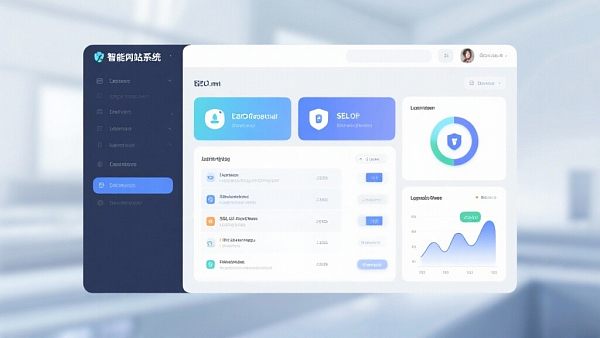
Conclusion: AI-powered foreign trade website systems excel in efficiency, cost reduction, multilingual deployment, and early-stage SEO—especially with global CDN, automated SSL, and DDoS protection for stable international access. However, strategic, brand-deep, and high-risk tasks still require humans. We recommend a "smart-first, human-optimized" phased approach: use AI for rapid scaling and baseline security, then refine with internal/external teams. If you’re weighing vendor selection, multilingual SEO, or AI ad implementation, contact us for a free technical assessment. With full-stack AI + big data capabilities and deep partnerships with Google, Meta, and Yandex, we help quantify every step of your foreign trade website growth.
- Campbell (name)
- free-standing station
- Intelligent website building system
- SEO optimization
- Intelligent website building
- AI translation
- AI translation engine
- Google Ads Optimization
- Foreign trade independent website
- High-Converting Website for Independent Foreign Trade
- Enterprise official website
- SSL certificate
- SEO Optimization Tools
- Yandex Promotion
- SEO diagnosis
- Construction of Independent Foreign Trade Websites
- Independent website construction
- Meta Ads
- Google Ads
- SEO
- social media automation
- Global CDN Acceleration
- Global CDN Acceleration for Independent Foreign Trade Websites
- DDoS defense for foreign trade independent website
- Foreign trade independent site SSL certificate
- Intelligent website building system for foreign trade independent website
Related Articles
![Recommended Arabic independent website construction companies for 2024: Reliable service provider rankings Recommended Arabic independent website construction companies for 2024: Reliable service provider rankings]() Recommended Arabic independent website construction companies for 2024: Reliable service provider rankings
Recommended Arabic independent website construction companies for 2024: Reliable service provider rankings![How is Easy Operation Treasure's foreign trade inquiry service? Real customer feedback and effectiveness evaluation How is Easy Operation Treasure's foreign trade inquiry service? Real customer feedback and effectiveness evaluation]() How is Easy Operation Treasure's foreign trade inquiry service? Real customer feedback and effectiveness evaluation
How is Easy Operation Treasure's foreign trade inquiry service? Real customer feedback and effectiveness evaluation![Can Yiyingbao's multilingual foreign trade website building service improve overseas lead conversion? Enterprise test report Can Yiyingbao's multilingual foreign trade website building service improve overseas lead conversion? Enterprise test report]() Can Yiyingbao's multilingual foreign trade website building service improve overseas lead conversion? Enterprise test report
Can Yiyingbao's multilingual foreign trade website building service improve overseas lead conversion? Enterprise test report
Related Products

